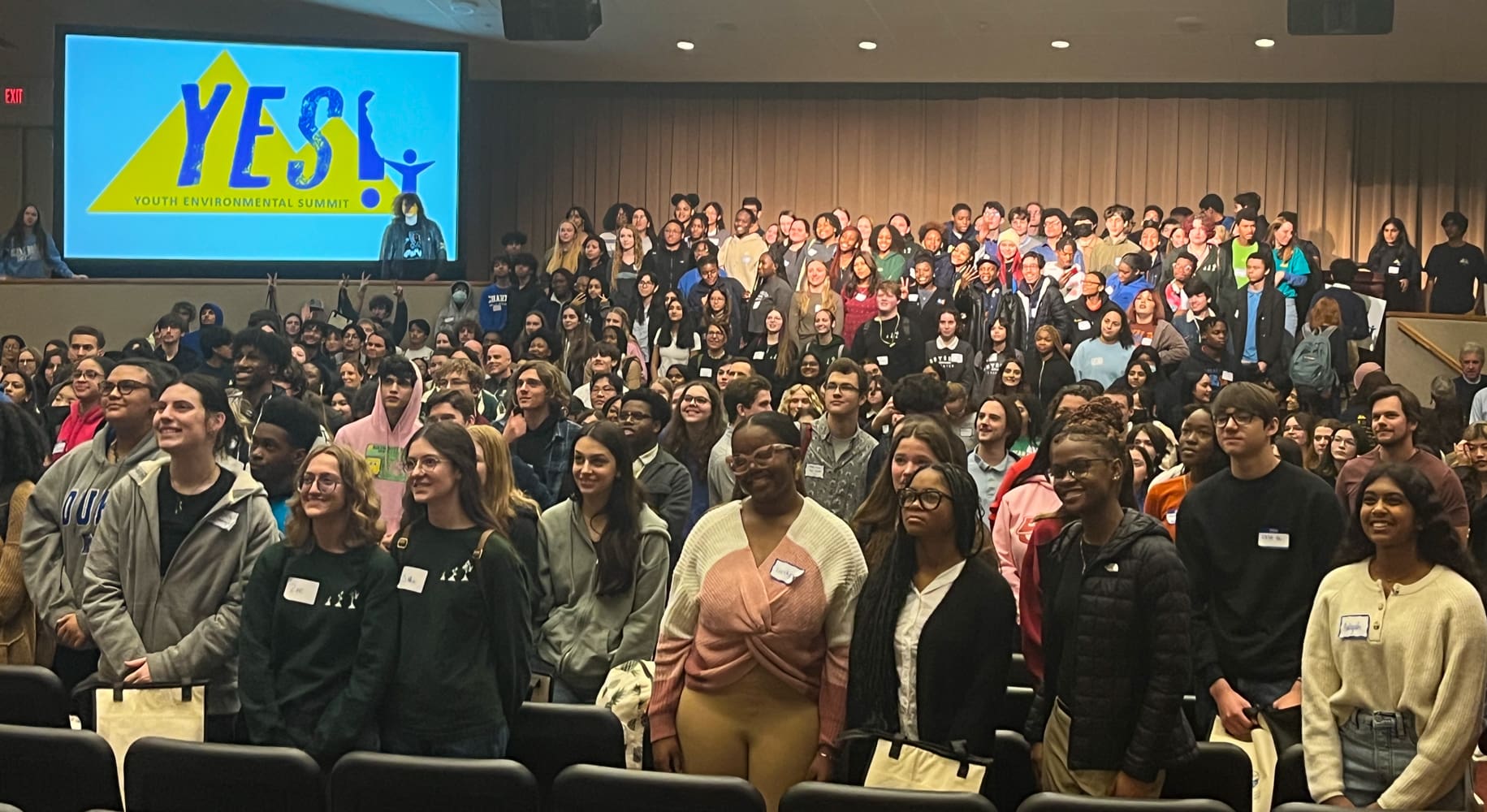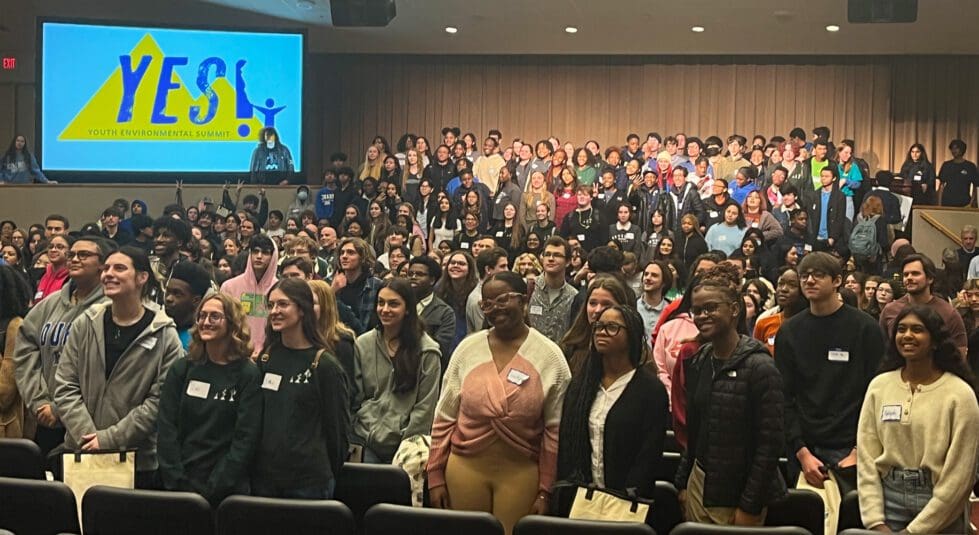

More than 500 Delaware high schoolers showed up to Thursday’s Youth Environmental Summit. (Jarek Rutz/Delaware LIVE News)
Odyssey Charter sophomore Arnav Taduviyi said awareness and education are the first step to combating the negative environmental effects of climate change.
“There is a point of no return which is honestly really scary and people should be aware and cognizant of that and try to make a difference, even if it’s just a small one,” he said Thursday during the fourth annual Delaware Youth Environmental Summit. “That’s basically what we’re trying to do here today.”
More than 500 high schoolers from more than 30 schools gathered in Newark at the University of Delaware for the seven-hour summit focused on educating state youth on behaviors and actions to positively impact the environment.
The event had 25 breakout workshop sessions discussing topics such as school food waste, hydroponic gardening at schools, the importance of bees, coastal restoration, electric vehicles, environmental technology, forest fires and more.
“I went to an overconsumption of water workshop and I learned about the different ways people unknowingly cause pollution in the water,” Taduviyi said.
Not picking up after a pet results in their secretions flowing into sewers and into Delaware’s waterways.
READ: State details plans for broadband expansion in county hearings
He also was taught that all grease needs to be disposed of in a trash can. Otherwise, it causes pipes to clog and will lead to contaminated water.
“After going to this summit it’s so much easier to take positive actions, and having that in the back of your mind, you’ll make actions subconsciously that are more sustainable,” he said.
The day’s events are in part created by a team of 30 high schoolers who make up the student leadership team.
Summit advisor Dee Durham pointed out that this was the first year there were information sessions for nine colleges to attract students to enroll in an environment-focused major.
In what looked like a job fair, dozens of environmental organizations had stations for students to apply to jobs, internships or to learn about what the organization does.
Durham represented Plastic Free Delaware, a group focused on eliminating plastic pollution in the state.
Ciara Rudloff, a sophomore at St. George’s Technical High School, said the workshop that stuck with her the most was on the topic of reducing plastic waste.
“I learned what mealworms were and how they have a ton of microorganisms in them that break down plastic quickly, which is really unheard of,” she said. “If you put a bunch of them in a styrofoam box, over a week they would eat the entire thing.”
Figuring out exactly what allows the mealworms to break down plastic, Rudloff said, could help environmentalists come up with new ways to eliminate plastic so there’s less in the ocean and in landfills.
Like Taduviyi, Rudloff said a lot of people aren’t aware of how their actions might hurt the environment, so having educational sessions can help spread the word on what behaviors to avoid.
“Since there’s so many people here, they’re going to want to talk about it with their friends and their families,” she said. “Then parents will say, ‘Oh, hey, my kid went to this today, and learned x, y and z,’ and a bunch of other people will be exposed to things they previously had no clue about.”
David Donohue, a New Castle doctor, talked to the students about the health and environmental benefits of a plant-based diet.
Not only are vegetables and plants more calorie-dense than meat, making people feel full quicker, but they also decrease the chances of heart disease, Alzheimer’s, obesity, high blood pressure and more.
While some in the crowd playfully heckled Donohue when he said that Chick-fil-A is terrible for the body and needs to be swapped with non-processed natural foods, the crowd erupted in applause when he gave facts about why school should start later.
“We are missing a subject in K through 12 education,” he said.
Donohue argued that schools need to teach health, nutrition and sustainability so children have a strong foundation on how to treat both the world around them and their own bodies with respect and grace.


Raised in Doylestown, Pennsylvania, Jarek earned a B.A. in journalism and a B.A. in political science from Temple University in 2021. After running CNN’s Michael Smerconish’s YouTube channel, Jarek became a reporter for the Bucks County Herald before joining Delaware LIVE News.
Jarek can be reached by email at [email protected] or by phone at (215) 450-9982. Follow him on Twitter @jarekrutz and on LinkedIn
Share this Post









